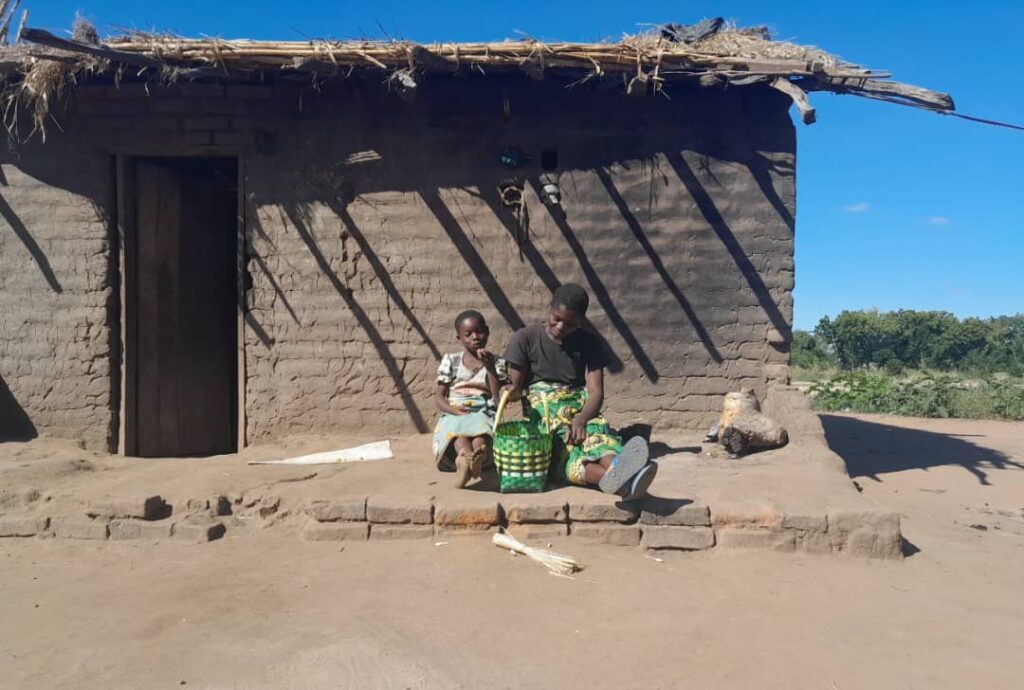By Blessings Bomati
Government estimates show that El Niño has negatively impacted 44.3 percent of the national maize crop.
The El Niño-induced drought damaged 44 percent of the national maize production and left 5.7 million people facing acute food insecurity.
The 2023–2024 Third Round Agriculture Production Estimate Survey forecasted a total maize production of two million, seven hundred twelve thousand, five hundred seventy-eight metric tons, a 22.7 percent decrease from the 2022/23 season and a 28 percent drop from the five-year average.
In response to the crisis, the government launched the National El Niño-Induced Prolonged Dry Spells and Floods Response Plan to support households hit by hunger.
Blessings Bomati takes us to Chikwawa District, where people of Traditional Authority Ndakwera are forced to eat docynia popularly known as masau due to the hunger situation.
On 23rd March 2024, President Lazarus Chakwera declared a State of Disaster in 23 of the country’s 28 districts due to severe El Niño conditions.
A prolonged dry spell in February 2024 hit at the worst possible time, during the key growing phase for crops, affecting 44 percent of the national maize output.
As a result, 6.1 million people are facing acute food insecurity, especially in the Southern and Central regions.
The El Niño event follows a string of climate-related disasters, including Tropical Storm Ana in 2022 and Cyclone Freddy in 2023, compounded by economic shocks such as poor harvests, low reserves, currency devaluation, and high inflation.
These consecutive crises, especially the repeated loss of harvests, have progressively deepened food insecurity.
For example, Chanaziwanki Andrea of Mvula Village, Traditional Authority Ndakwera in Chikwawa, says her family is currently surviving on masau due to hunger.
“We usually receive poor rainfall that leads to low harvests. This village has constantly faced hunger, forcing villagers to survive on docynia,” says Andrea.

Fanny Fredson from Julius Village in the same area adds that they have persistently experienced low harvests, triggered by poor rainfall caused by climate change.
Fredson: “I would like to appeal to the well-wishers to assist us with food aid.”
According to the 2024 Nutrition SMART Survey, the national combined global acute malnutrition rate for children aged 0 to 59 months has doubled from 2.2 percent in 2020 to 4.4 percent in 2024, with some districts recording rates as high as 7.3 percent.
Phalombe District Nutritionist, Lucy Ndiwo, says there is a need for serious interventions to treat moderate acute malnutrition and to roll out longer-term, nutrition-sensitive preventive measures where food insecurity and climate shocks are most severe.
“The problem of malnutrition is too big here because most of the caregivers shun away from malnutrition screening,” says Ndiwo.
Centre for Human Rights and Rehabilitation (CHRR) Executive Director, Michael Kaiyatsa, has faulted successive governments for failing to ensure food security for citizens, even as Malawi marks 61 years of independence.
“It is worrisome that our brothers and sisters in Ndakwera village are eating masau, and I would like to urge the government to take this seriously because it is a violation of human rights,” says Kaiyatsa.
Governance expert Victor Chipofya has called for a strategic framework that would enable the government to distribute food relief to deserving areas without politicizing the initiative.
The National El Niño-Induced Prolonged Dry Spells and Floods Response Plan was launched on 30th April 2024 to coordinate emergency relief efforts and resource allocation, alongside partners such as the World Food Programme.
United Nations Resident Coordinator, Rebecca Addah-Dontoh, says the UN will continue supporting households affected by hunger in Malawi.
However, she called for stronger coordination among stakeholders to ensure long-term food security.

Children risk experiencing severe malnutrition, and families risk losing their dignity if the situation persists.
The government’s strategy to tackle malnutrition, called Scaling Up Nutrition (SUN) is especially critical at this moment.
However, the strategy will fail if it is not properly enforced and if it lacks complementary, community-driven interventions.
As hunger deepens in Malawi’s rural areas, the crisis in Ndakwera is a harsh reminder that climate change, weak social safety nets, and poor disaster preparedness continue to leave millions vulnerable.
While donor support remains essential, Malawi must urgently invest in strategic, long-term solutions, including resilient agricultural systems, social protection, and decentralized food distribution mechanisms, to end the cycle of hunger once and for all.

Timveni Child and Youth Media Organisation uses radio and television to give a voice to Malawi's young people, especially girls, on children's rights. The organization exists to help young people in Malalwi make a difference in their own lives, create awareness about children’s rights, and build the capacity of children and young people.
- Terms and Conditions






Leave a Reply